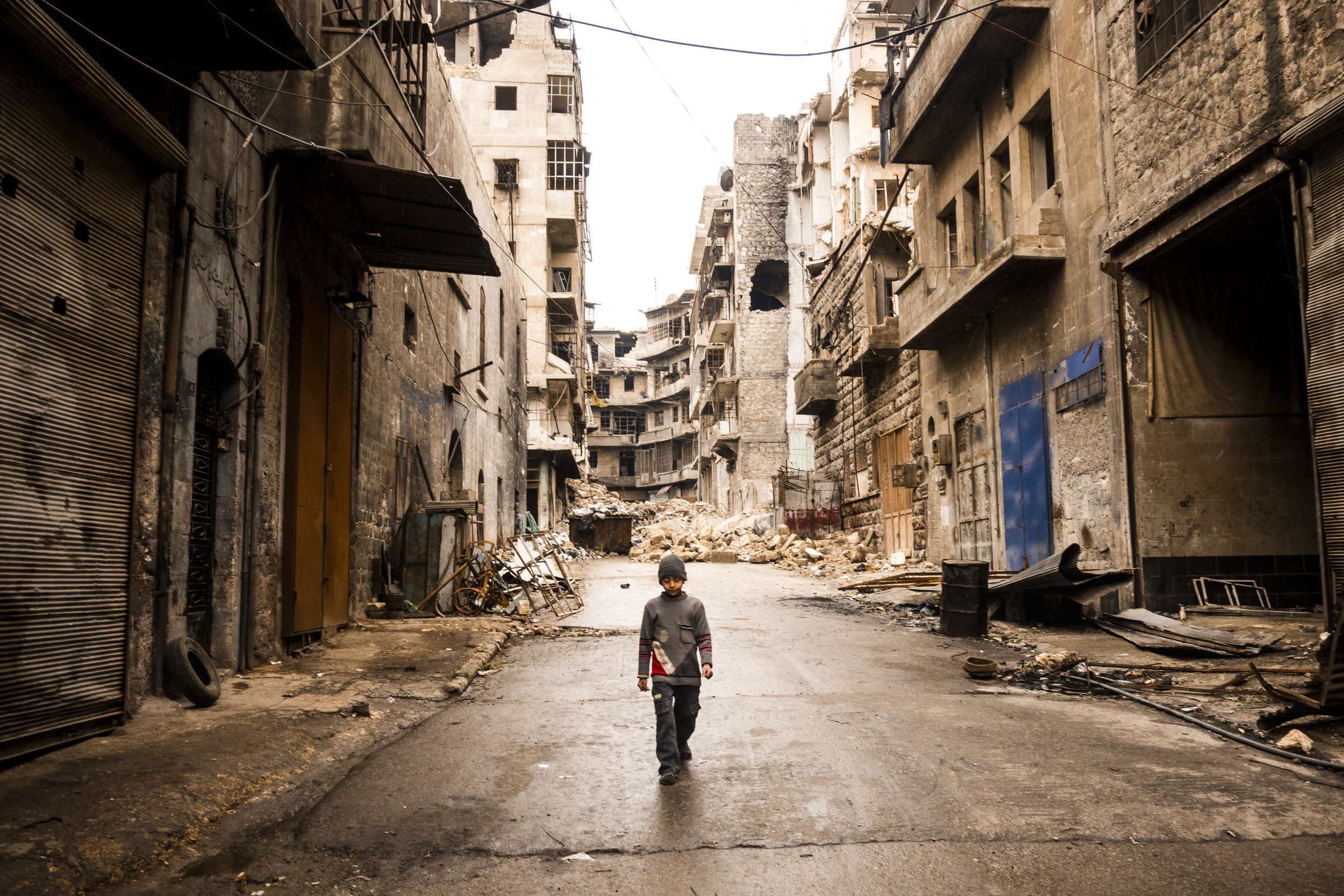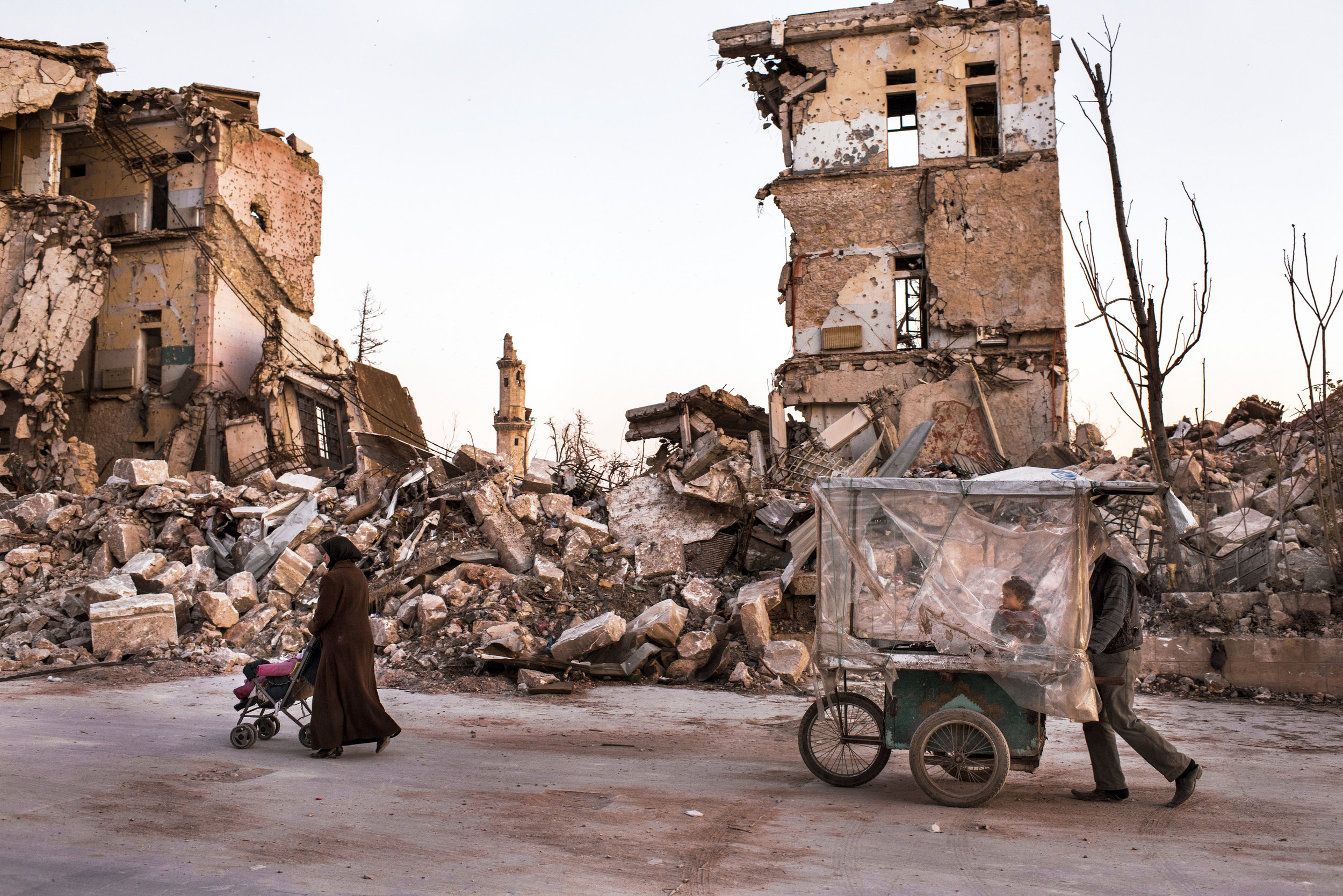Aleppo After the Fall
by Sebastian Liste
Home made bomb made with Turkish butane bottle used by the opposition inside a building in the destroyed East Aleppo.
The Battle of Aleppo began on July 19th, 2012 and ended at the end of 2016. After four years of fighting, the battle represents one of the longest sieges in modern warfare and one of the bloodiest battles of the Syrian Civil War
This battle was a major military confrontation in Aleppo, the largest city in Syria, between the Syrian opposition (including the Free Syrian Army (FSA) and other Sunni groups, such as the Levant Front and the Al-Qaeda-affiliated Al-Nusra Front), against the government of Bashar al-Assad, supported by Hezbollah, Shia militias and Russia, and against the Kurdish People's Protection Units.
The drawn-out siege of Aleppo was widely deplored as a war crime comparable to the worst massacres of the Bosnian war during the 1990s. The refusal to intervene, some said, was a defining moral failure of the Obama administration. The regime supporters saw only the rebels’ atrocities and their manipulation of civilians for propaganda. The “fall” of Aleppo, they said, was really the “liberation” of a city from terrorist rule, and a sign that Assad had all but won the civil war.
Both portraits are false and self-serving. The Syrian tragedy started in a moment of deceptive simplicity, when the peaceful protesters of the 2011 Arab Spring seemed destined to inherit the future. Chants for freedom turned quickly to insurrection, bullets and war. But it took some time for outsiders to recognize how different Syria was, how its internal schisms would provoke the fears and ambitions of all its neighbors. The Saudis and Turks wanted to replace Assad with a reliable Sunni client, while Iran and Hezbollah held fast to their one foothold in the Arab world. Russia, which intervened decisively in 2015, had its own motives: flouting American designs and protecting a reliable autocrat. The United States, having expected Assad to fall on his own, dithered over support for the rebels.
Aleppo became the rebels’ last major urban redoubt. Its fall reconfigured the Syrian battleground: The Saudis and Turks resigned themselves to Assad’s rule, and their rivals exulted in a victory that seemed to justify years of blood and treasure. The city had become a symbol of sorts, a sprawling commercial hub where every faction seemed to have left its mark.
Even though the battle of Aleppo finished, the war in Syria is still ongoing. International organizations have accused the Syrian government, ISIS and rebel groups of severe human rights violations and of many massacres. The conflict has caused a major refugee crisis. Over the course of the war a number of peace initiatives have been launched, including the March 2017 Geneva peace talks on Syria led by the United Nations, but fighting continues.
Street scene in the surrounding of Aleppo's Citadel








